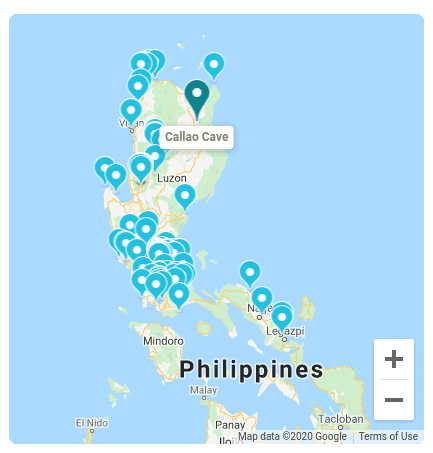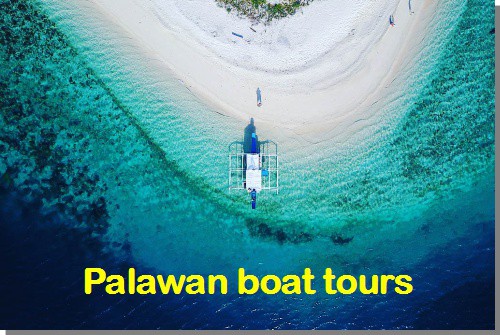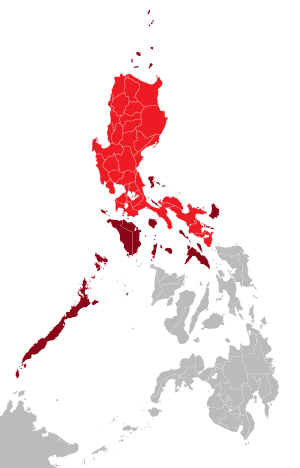
Luzon is the country’s largest island and 15th largest in the world, with a population of 53 million — about half the country’s. Therefore, it has tons of things to see in this nature rich country. However, if this is your first time visiting the country, we recommend you check out some of the more spectacular sights in the Philippines, such as those found in Palawan or Visayas. And if you have the budget, we would love to take you on one of our custom private or group boat tours between El Nido and Coron in Palawan.
If you would like to explore Luzon, we suggest only Luzon because of the great expanse of the country, otherwise you will spend a lot of your vacation time on transport. In fact, as you will see in this map of attractions and destinations for Luzon, there are so many options that you may even need several visits just to cover the great expanse of this island alone! Below I’ll give a brief description to the more popular sites.
Most popular tourist destinations and attractions in Luzon
There will be links to some others below.
Banaue Rice Terraces
By far the most popular and famous among the tourist attractions in Luzon, and a must see if you will be touring this part of the country. Anthropologists claim that the terraces may be over 2,000 years old, built by hand and simple tools by the indigenous ancestors of Ifugao. It is considered the Eighth Wonder of the World, the steps if strung end to end would encircle half the globe. It draws water through an ancient irrigation system from the rain forest above the terraces, although nowadays less people are interested in such subsistence farming, the younger locals often moving to Manila or working for the tourism trade for a more lucrative lifestyle.
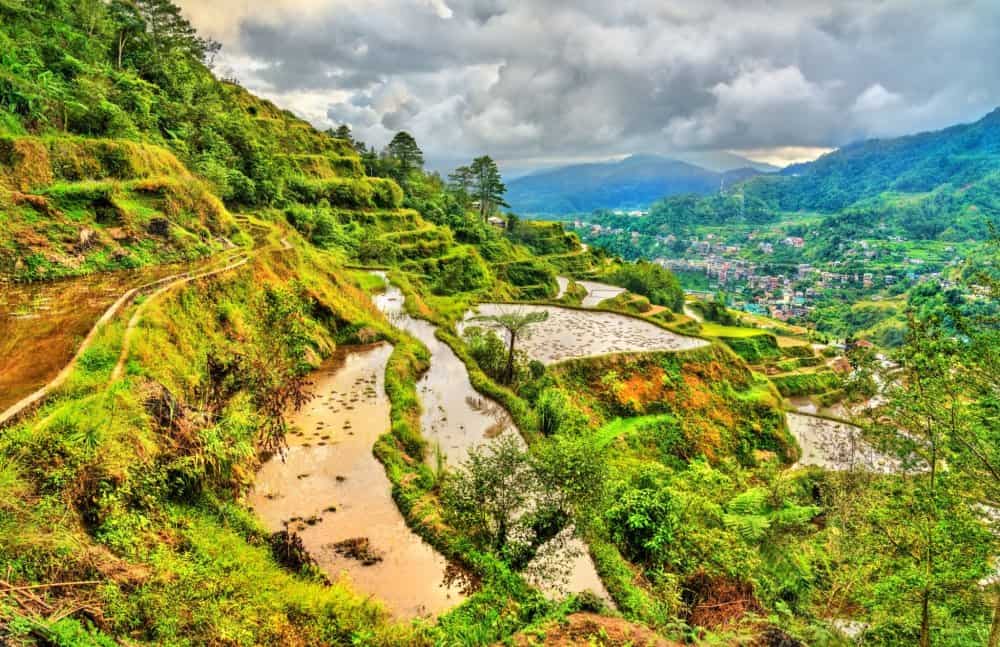
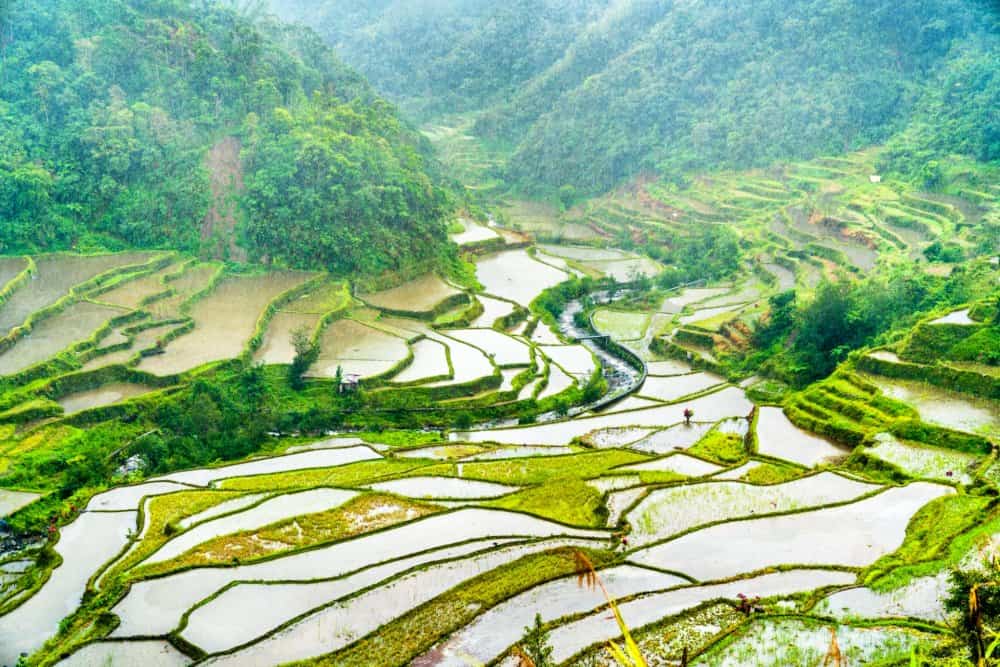
There is also the Batad Rice Terraces:
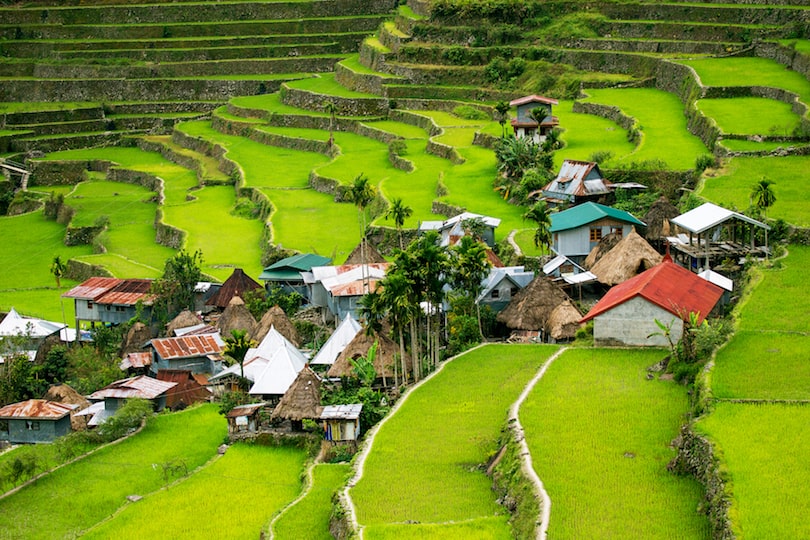
Vigan
Vigan is one of the oldest towns in the country and boasts an intriguing and important mix of historical and cultural landmarks. With a lot of great restaurants and bars, you will find yourself amply busy over a couple of days of sightseeing, while it is also a great place to buy locally-made arts and crafts.
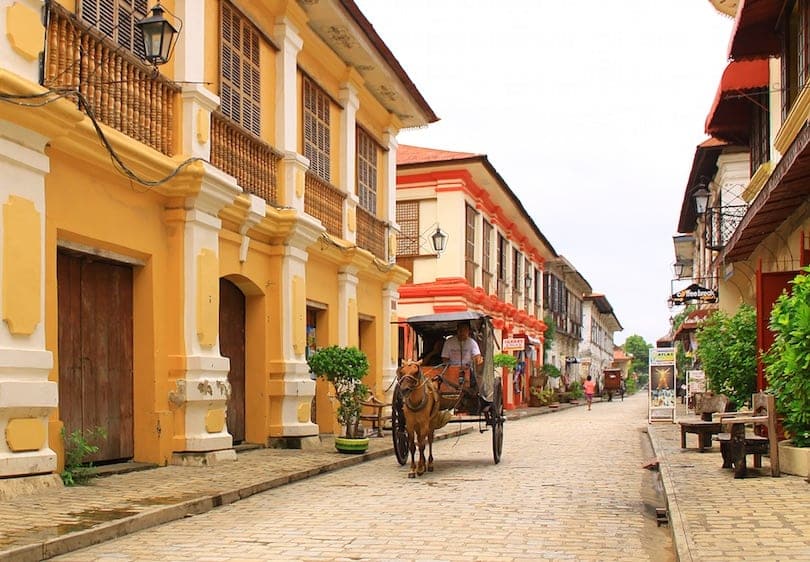
Hundred Islands National Park
Not far north from Manila, this wonderful home to 124 islands and islets is a great place to camp overnight on some secluded island and spend a few days snorkeling in its sparkling waters full of marine water or exploring the limestone islands covered in forest and sprinkled with the occasional remote beach.
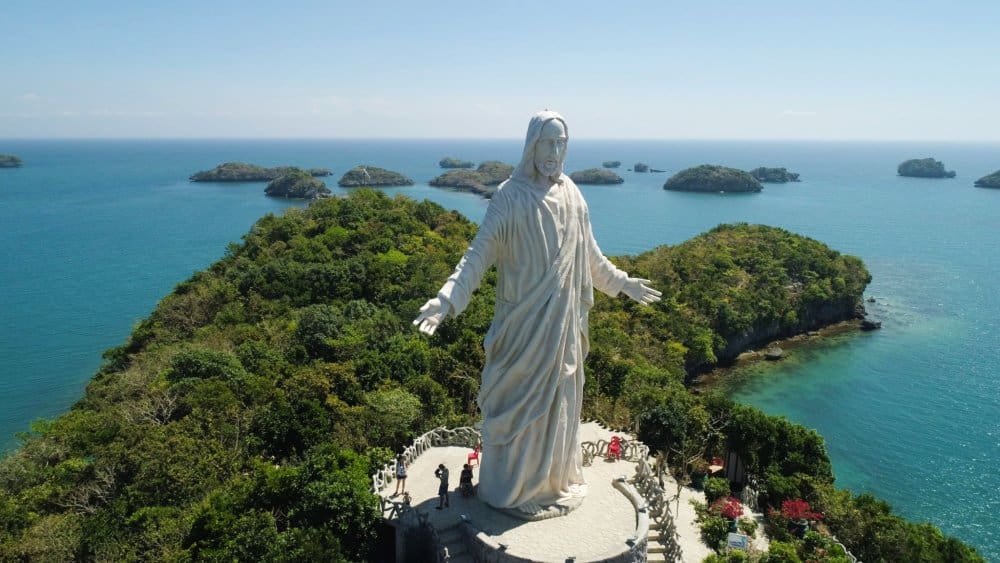
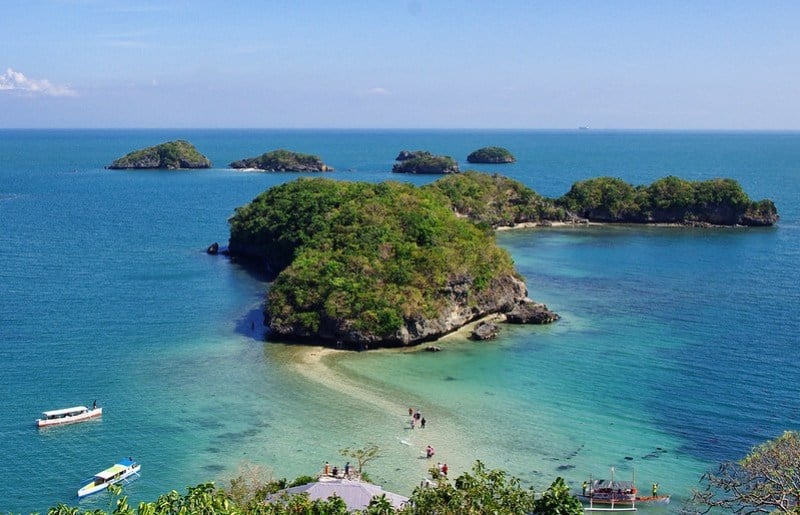
Sagada
Famous for its cliff hanging coffins, this is a great area for hikers, whitewater rafting, rappeling down cliffs, and exploring caves, waterfalls and viewpoints.
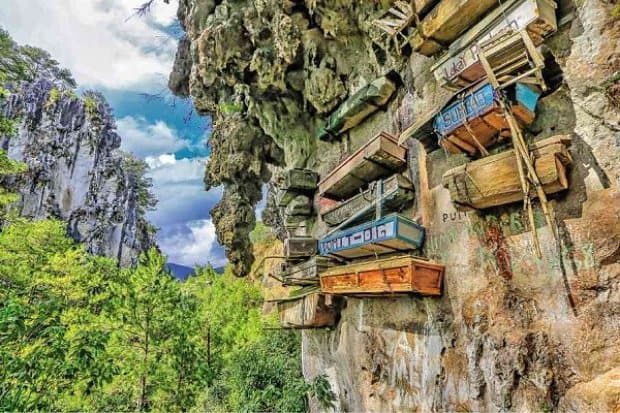
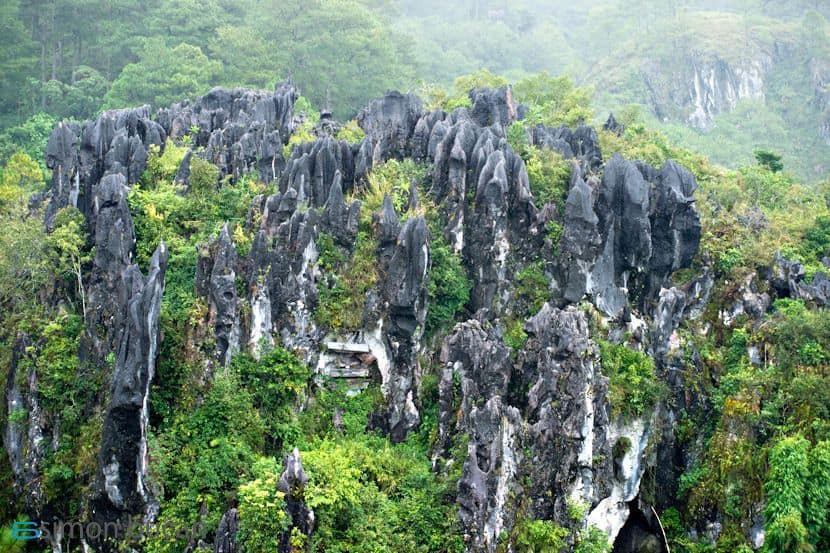
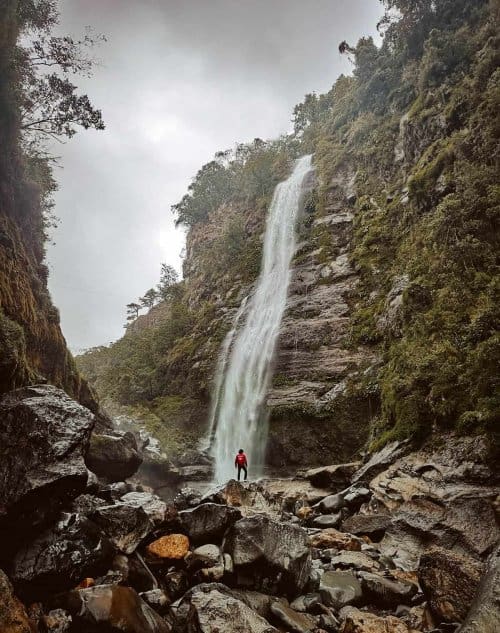
Mount Pulag National Park
Not far from the Hundred Islands National Park, this is also a hiker’s paradise.
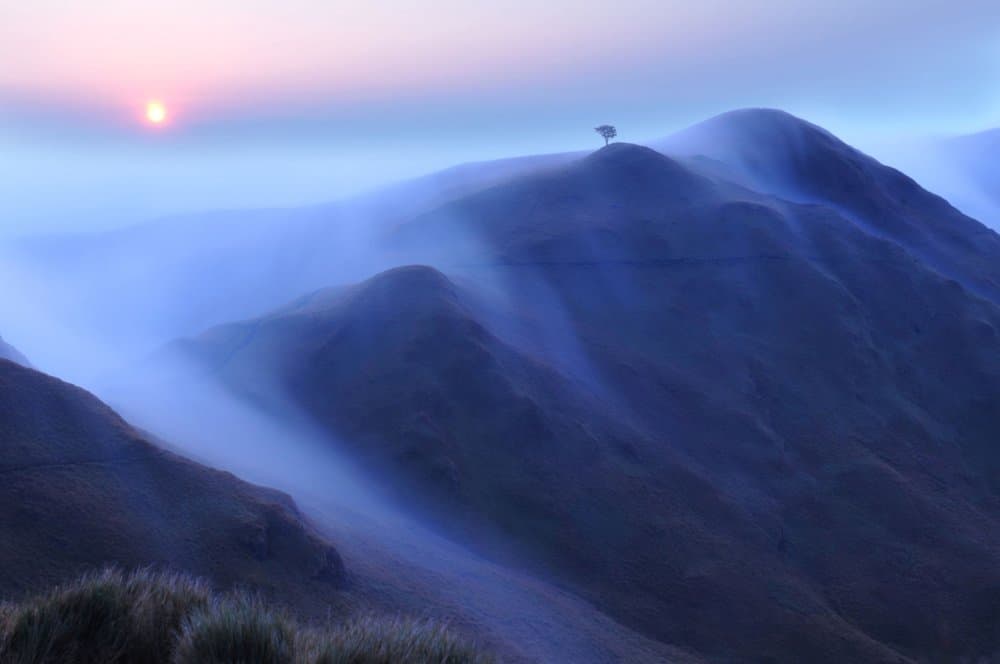
Sumaguing Cave
A little pitstop for spelunkers.
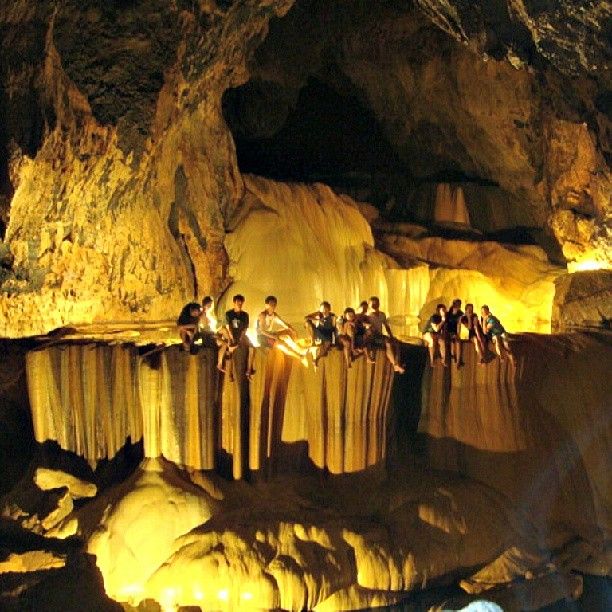
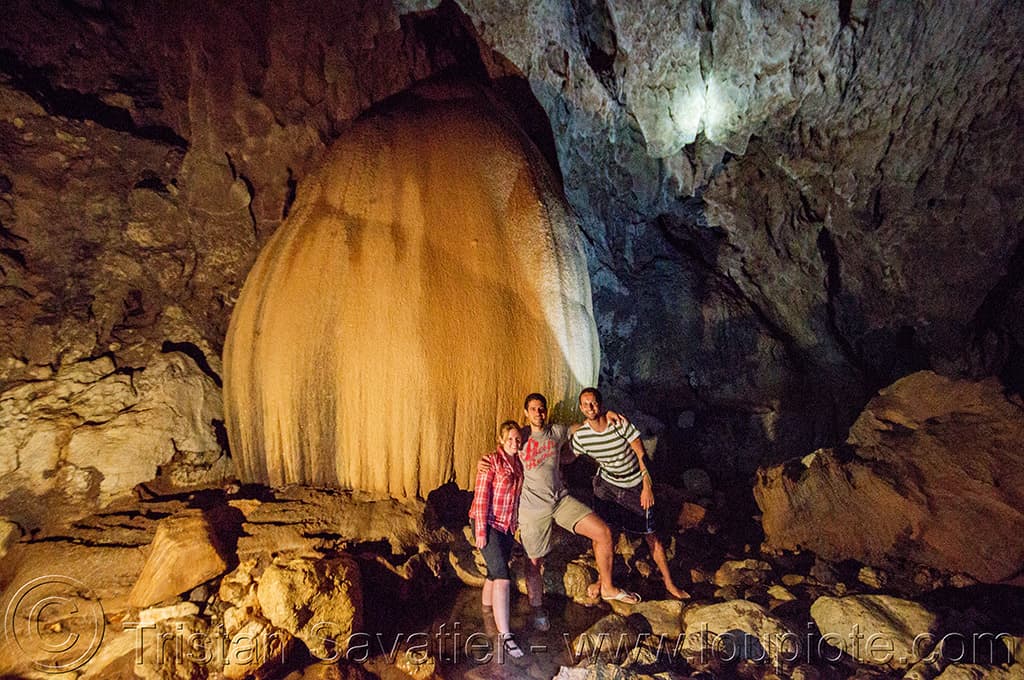
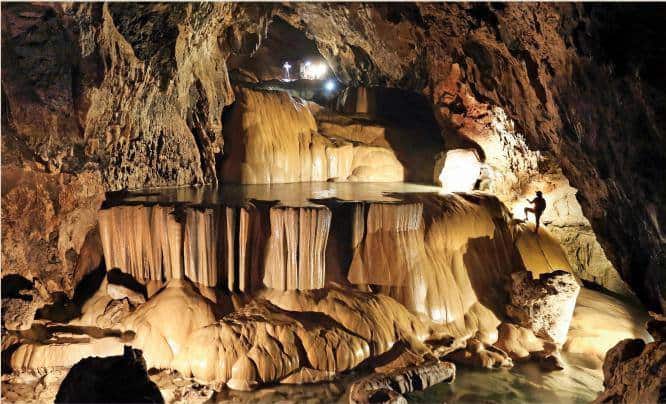
Manila Ocean Park
If you are stuck in Manila for a day you can let yourself get lost in this wonderland.
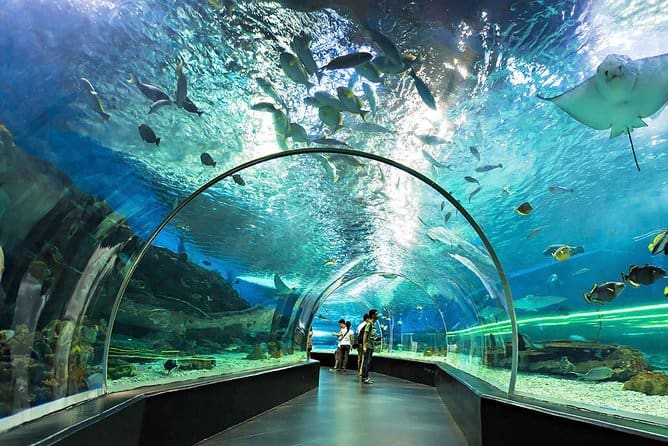
For ideas on other areas in Luzon you can try:
- touropia for northern and central Luzon
- google suggestions based on user reviews
History and interesting facts about Luzon
With a population of 53 million, Luzon is the 4th most populous island in the world, making up about half the entire country’s. The name is said to be derived from the Tagalog word “lusong”, which represents a large wooden tool used to dehusk rice:
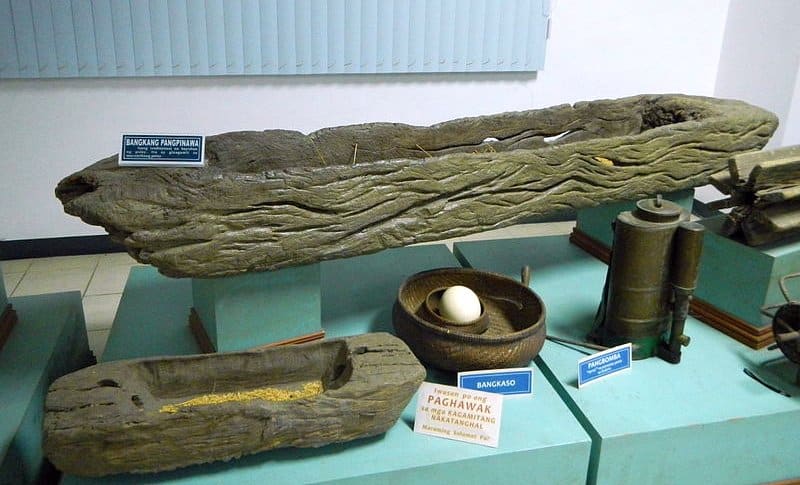
This tool was usually used by two to three men or women who would work in rhythm together to pound the rice and was actually a focal point for socialising among villagers.
The island was originally inhabited by Negritos before Austronesians from Taiwan took over. By the 16th century the Spaniards broke up the various kingdoms, establishing the islands of the Philippines (Las Islas Filipinas) with their capital in Cebu, later moved to Manila. Under Spanish control, Luzon was used as a point of trade between the Americas and Asia, bringing in silver from Peru and Mexico to be used in exchange for Chinese silk, Indian gems and Indonesian spices. This trade and activity turned Luzon into a focus of global migration.
Eventually for 20 million dollars Spain sold its Philippine footholds to the US following their defeat over the battle for Mexico, giving rise to the First Philippine Republic, which in turn rebelled against US efforts to subjugate their new aquisition. However, no other country in the world recognised the young republic and the rebel forces were overcome by the sheer numbers of the American colonisers. It is at this time that the US set up the city of Baguio in the mountains as a summer retreat for their officers.
After the World War, many colonies around the world rose up against their overlords, the Philippines among them and which eventually gained its own independence. Luzon became the wealthiest island in the archipelago, but the lingering divide between the rich and the poor perpetuated by US supported dictator Ferdinand Marcos led to civil unrest and the dispersion of many from their original homeland.
The Philippines abounds in beautiful nature and wonderful people, and a great way to experience it is to get off the beaten path. If you make your way down to Palawan, we would love to take you on a custom private or group boat tour between El Nido and Coron. It is our favourite part of the country!
Interesting facts and history about the Philippines | Palawan | Visayas | Mindanao
Explore the Philippines
FAQs
What is Luzon known for?
Luzon, the Philippines’ largest island, is a captivating blend of buzzing metropolises, historical landmarks, and natural wonders. From the pulsating streets of Manila to the picturesque Banaue Rice Terraces and the thrilling Taal Volcano, Luzon offers a kaleidoscope of experiences that’ll leave every traveler spellbound.
What is the best time to visit Luzon?
The best time to visit Luzon is during its dry season from November to April. During these months, you’ll be greeted with sunny skies, perfect for exploring its beaches, mountains, and cities. Just remember, December to February is a tad cooler, making it ideal for those seeking a break from tropical heat!
What foods must I try in Luzon?
Luzon’s culinary scene is a delightful rollercoaster of flavors! Dive into a bowl of savory ‘adobo’, relish the creamy ‘halo-halo’ dessert, and don’t miss the crunchy ‘lechon kawali’. And if you’re feeling adventurous, ‘balut’ (duck embryo) is a local delicacy that’ll give you bragging rights!
What happened in Luzon during WW2?
During WWII, Luzon became a major battleground. The infamous Bataan Death March began here in 1942 after American and Filipino troops surrendered. But hope was rekindled in 1945 when General MacArthur fulfilled his promise, “I shall return,” leading the Allies to reclaim the island from Japanese forces.
What is the history of Luzon?
Luzon, with its rich tapestry of history, has witnessed the rise and fall of kingdoms, colonization by Spain for over 300 years, rebellions, and its eventual liberation. From ancient trading with Chinese merchants to Spanish-era churches, the island’s past is as vibrant as its present!
What is the culture of Luzon?
Luzon pulsates with a blend of indigenous traditions and colonial influences. Here, you’ll find the spirited Pahiyas Festival, the haunting beauty of the Ifugao Rice Terraces, and cities echoing Spanish architecture and fiestas—all harmoniously mingling with modern Filipino zest!
What makes Luzon beautiful?
Luzon dazzles with natural wonders—from the perfect cone of Mayon Volcano to the serene beaches of Batangas. Add to this the architectural marvels, bustling cities, and the warmth of its people, making Luzon a traveler’s dream come true!
Who were the first people in Luzon?
Luzon was first inhabited by the Aetas, a dark-skinned, petite, and curly-haired indigenous group. These resilient hunter-gatherers have thrived in the island’s mountains for thousands of years, bearing witness to Luzon’s ever-evolving story.
Why is it called Luzon?
The name “Luzon” is believed to have been derived from the Tagalog word “lusong,” referring to a large wooden mortar used in traditional rice pounding—a nod to the island’s agricultural heritage.
What is one ethnic group in Luzon?
The Ifugao people of the Cordilleras in Northern Luzon are renowned for their awe-inspiring rice terraces, ancient rituals, and intricate woodcraft. Their rich culture is a testament to Luzon’s diverse ethnic tapestry.
Is Palawan still part of Luzon?
Geographically, Palawan is within the Luzon group of islands. However, administratively, it’s part of the MIMAROPA region, which stands apart from the main Luzon island but shares its vibrant allure.
Is Boracay part of Luzon?
No, Boracay is not part of Luzon. It’s a stunning island located in the Western Visayas region, known for its powdery white sands and sapphire waters—a tropical paradise in its own right!
Why you should visit Luzon?
Luzon beckons with its captivating blend of natural wonders, historic sites, and bustling urban centers. Whether you’re hiking Mount Pulag, exploring the streets of Intramuros, or savoring local delicacies, Luzon promises adventures that will etch in your heart forever!
What is Luzon famous for?
Luzon boasts the bustling metropolis of Manila, the historic streets of Vigan, the majestic Mayon Volcano, and the UNESCO-listed Ifugao Rice Terraces. From its rich history to its diverse landscapes, Luzon is a mosaic of wonders waiting to be explored!
Home »
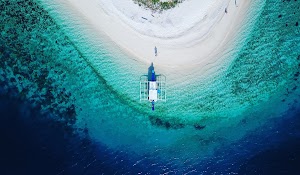
We are a family operation managing private custom boat tours in the beautiful Palawan area, and are happy to help travelers with their plans through the country, having traveled a lot of it ourselves and planning to visit it all.
